We take it for granted. When we turn on a new Final Fantasy or almost any game, we believe the dialogue and expository text will be written so well that we won’t even think about its quality — readability is a given, artfulness a pleasant bonus. When Final Fantasy XV and Kingdom Hearts 3 finally came out, there was no question that their character performances and scripts would be unquestionably professional (even if they were noticably eccentric). It wasn’t always this way. Anyone playing Final Fantasy VII in English on Nintendo Switch will likely get a taste of precisely how bad the writing in games, especially in games localized from other countries like Japan, used to be. Alexander O. Smith is one of the people that helped make localizations and video game writing in general more literary, more dramatic, and just generally better. Over the course of the last 20 years, his work with publishers and developers like Square-Enix and Capcom elevated game writing from “good enough” to just plain “good.”
This month, six of Smith’s most beloved games are being re-released on Nintendo Switch, PlayStation 4, and Xbox One. Phoenix Wright: Ace Attorney Trilogy when, first localized as a series on Nintendo DS by Smith, brought visual novels and video game comedy to a whole new audience last decade. Meanwhile, his legendary work on Final Fantasy X, Final Fantasy X-2, and Final Fantasy XII redefined expectations of drama and screenplay quality in role-playing games.
To mark the occasion, Smith and I had a wide-ranging conversation about video game writing, labor practices in the video game industry, role-playing games, Final Fantasy and, of course, Vagrant Story.
How has game writing changed since you entered the industry 20 years ago? What’s changed for the better and what’s changed for the worse?
More sophisticated approaches to narrative design have changed the role writing plays in western games — I’m thinking of games like Path of Exile which let you wander through the world, listening to narration play while you get on with your business, and “cutscenes” that play out whether you choose to stand and listen or not, a la BioShock or Red Dead Redemption 2. This more ambient approach to storytelling has changed the writing itself, for the better. You have to polish that much more when your words are competing in real time with whatever other entertainments the game offers.
Meanwhile, back in Japan, RPGs are still subjecting us to long chunks of text and unskippable cutscenes. The biggest change [in JRPGs] is that more developers are going straight to English-language talent to help them write games in English from the ground up. The results there have been mixed, but hopefully we’ll get to a place where these hybrid-culture games are putting together the best from both worlds.
How has the process of working with a Japanese developer in bringing their games to the rest of the world changed over that period of time?
In addition to those devs who have changed the game entirely by going straight to the source and hiring English writers, Japanese developers are, in general, much more aware of what a good localization requires. Part of that is due to expanding in-house staff at places like Nintendo (Treehouse) and Square-Enix, and translation agencies also play an important role. Big positives are increased communication between dev teams and localization, and more realistic scheduling.
What is most different about the localization process in 2019 compared to 2009? Compared to 1999?
Translation circa 1999: Welcome to the only slightly less wild Wild West (compared to, say, 1995). The Internet isn’t terribly useful for research. Devs have absolutely no idea what a good loc requires, meaning that for every game that lucks out with a competent (or even excellent) translation team, you have 10 that are still being translated by people who happen to be bilingual, but aren’t necessarily good writers, or worse are non-native [speakers]. Pay rates are all across the board. Only a handful of localizers have been doing it long enough to have a real idea of what they’re doing, and they have to fight with dev teams to get things like text files. Recordings of game sequences and cutscenes are an unattainable dream, unless you’re willing (and have the time) to play through the game yourself with a gameshark and a VHS deck. Schedules and workloads are often wildly unrealistic. Oh, and those Game Boy games (Rockman.EXE, I’m looking at you) have to be translated using double-byte characters, which means crazy character limitations per line, underbars instead of spaces, and no spell check.
Translation, circa 2009: That’s much better. Many localizations are being done with full access to the game and dev team, and savvy localization outfits demand recordings of cutscenes, or at least schedule billable time for familiarization. The mishmash of clunky text file formats has given way to excel sheets and the occasional proprietary text handler. Dev teams are getting much better at adapting GUIs to fit space-hungry languages like English and German. Though we’re still largely stuck writing English dialogue to fit Japanese lip movements, the dev teams are better at integrating non-Japanese voice tracks without the draconian length limitations we saw earlier this decade (Final Fantasy X …). The localization industry has matured quite a bit, too, with more skilled coordinators and directors who know exactly what is needed from all sides of the equation.
Translation, circa 2019: Two steps forward, three steps back. We’ve got all the advantages we had back in 2009, which makes the lingering issues sting that much more. The main culprit is a lack of budget, meaning localization positions are appealing mostly to younger, inexperienced talent, and there’s a lot of turnover and burnout. A select handful have managed to cultivate the right mix of steady gigs and direct-to-client work needed to support a family and still see the kids on the weekends, but largely, it’s a young person’s game. That means you have a lot of localizers who, while they may have raw talent, are lacking in the kind of experience that lets them know when to push a text further, and when to rein it back in.
How has your relationship with video games changed since you entered the industry?
I have real trouble enjoying narrative-heavy games, ironically, because I slip immediately into work mode. If it’s not brilliant, I can’t stand it. That goes doubly so for games in translation. Also, narrative-heavy games take too long to play, for the most part. For my narrative fix I go to books, movies, and TV, while my game choices have skewed increasingly toward more casual fare. I still play everything I can, but I’ve spent far more hours on Hearthstone than I spent on the last BioShock.
What is the most difficult part of translating humor between cultures? What’s the difference between localizing scatological or cynical humor like in Madworld compared to light slapstick like in Doctor Slump or the corniness of an Ace Attorney?
The key to translating humor — and to a slightly lesser extent, all translation — is to treat it less like a translation task, and more like a closely guided exercise in creative writing. Authenticity is great when you can get it, but those opportunities are few and far between, and given a choice between a true-to-the-original rendition of a joke that falls flat and a re-imagined joke that works, I pick the latter every time.
Knowing when to do which is a question with no single right answer, and a lot of wrong answers. The best we can do is let the characters and the scene guide the humor, as opposed to the specific word being used. What would Phoenix Wright say in this situation? How would an English-language writer structure this scene to lead to a satisfying punchline? The trick to keeping the tone correct for your text, is to make sure that even your wildest diversions from the original are, at heart, inspired by the original. When a translation adds something that not only wasn’t in the original, but could never have emerged from the original, you enter dangerous territory.
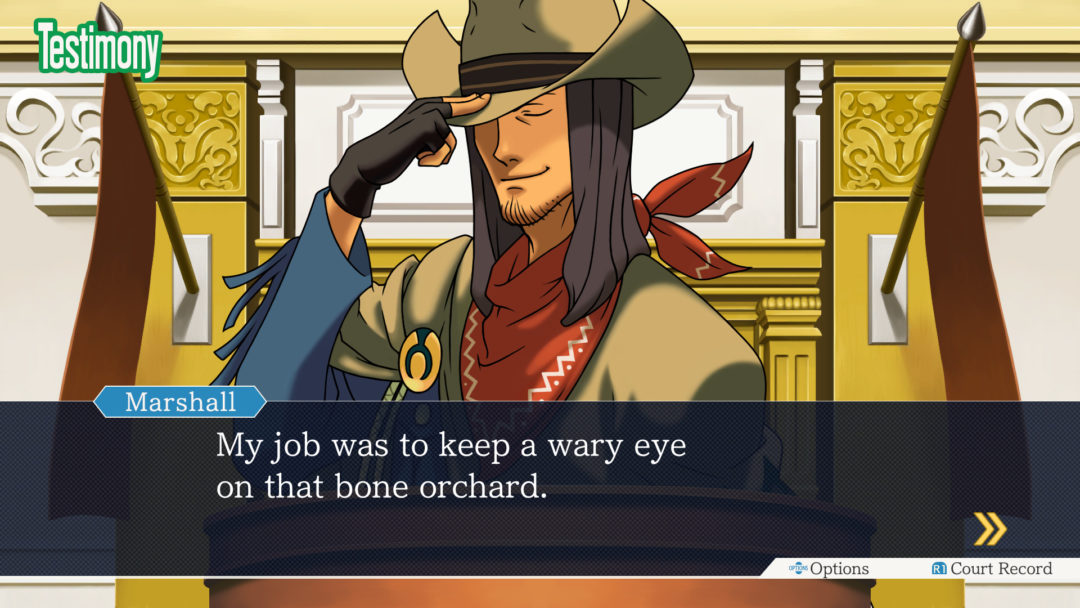
The creative aspect of localization is fascinating to me in that you’re not just trying to make something understandable to a different culture, you’re trying to best represent the vision another group of artists filtered through your own. How do you have to reign in your own storytelling impulses when working on localizing compared to original work? Alternatively what freedoms do you have when working on a localization project that you don’t have on a wholly original story?
I firmly believe that restraint breeds creativity. Yes, you do have to refrain from going on storytelling tangents that don’t reflect the nature of the original work when localizating, but the challenge of both nailing the presentation and servicing the original can (when everything goes well) produce results you might never have seen without those restrictions. I’m still fond of the area names for the rooms in Vagrant Story. They were very descriptive in Japanese, but the length limitation in English meant I had to get creative. “Hall where cheap wine flowed” became “Bacchus is Cheap,” etc.
One of the biggest freedoms you can have on a localization project (though it’s highly title-dependent) is the gift of excellent source material. If a script is already tightly written with fully realized characters, then all the time you have for localization is icing on the cake you can use to polish an already shining story. Conversely, with some scripts, you can spend all the time in the world and you’ll never truly fix what’s broken. This dynamic is one of the most overlooked aspects of localization by commenters and reviewers, but it has a huge effect on the quality of the final product.
What’s been different about working with Ori and the Blind Forest developers Moon Studios, a team of international developers working for a Western parent company, compared to established giants from Japan like Sega, Square, and Capcom?
Pretty much everything is different. Part of that is a difference of culture and the relative ages of the companies — Moon is still quite small, and very collaborative. Cross-departmental input and feedback is encouraged, which means that if I have something to say about a design decision, I can say it and it will be heard, and likewise I field ideas and corrections from people across the company. Square (and other Japanese game companies) tend to be more compartmentalized and regimented.
My position is also different, though that tends to change with every job I’ve taken. I’ve had a fairly free hand within the scope of localization working for companies like Square, but less so with other developers where I was working through an agency. On the creative side, too, on projects like Blood Brothers 2 for DeNA (a mobile game where I was the head writer for about two years) I had full autonomy within the design restrictions of the game itself, whereas my work for places like Wizards of the Coast on Magic: The Gathering card text was much more closely defined and restricted.
As a writer, what would you like to see change about the video game industry over the next ten years?
I like the direction the game industry is heading currently, writing-wise. People are taking risks with narrative design, and the field seems to be attracting more and more talent. That said, I know it can be a volatile industry with big ramp-ups and sweeping layoffs. Anything to mitigate those swings and bring some stability would definitely contribute to the long-term health of the industry and the people who work in it. I know a lot of people are talking about unionization (and there are probably some companies who live in fear of a SAG for game devs), but something like that could help, especially in parts of the industry (like localization) that have to fight for the table scraps.
What project from the past 20 years do you wish you had a second shot at localizing?
I’ll pick two, for different reasons. While I feel like, for their respective times, they were both pretty good, I would love to revisit Vagrant Story and Final Fantasy X. Vagrant Story was essentially my first full project. While there is a lot about it I wouldn’t change, in the years after Vagrant Story I learned a lot more about writing dialogue for voice, which has in turned changed how I write non-spoken dialogue. Several years ago, a group of fans actually recorded a radio play of Vagrant Story and while I applaud their effort, the script wasn’t doing them any favors. I’d give it a rehaul so the lines would work as well out loud as they work on the page.
For Final Fantasy X, I’d love to revisit the voiced lines there with the experience of Final Fantasy XII under my belt. Again, I’m glad with how it turned out for the time, but there was so much I didn’t know.
What series or game do you most wish you could work on a follow up to?
Vagrant Story 2.
What is the perfect cocktail to pair with Final Fantasy XII? Vagrant Story? The Final Fantasy Tactics series? I need an Ivalice flight, you feel me?
Not a cocktail, per se, but Final Fantasy XII would have to be single-malt whiskey. Something really peaty, like sucking on a rotting log. In fact, it’s quite possible that during the final crush to finish the non-voice text for Final Fantasy XII, I might have gone out to a bar after dinner and continued typing while drinking said single malt.

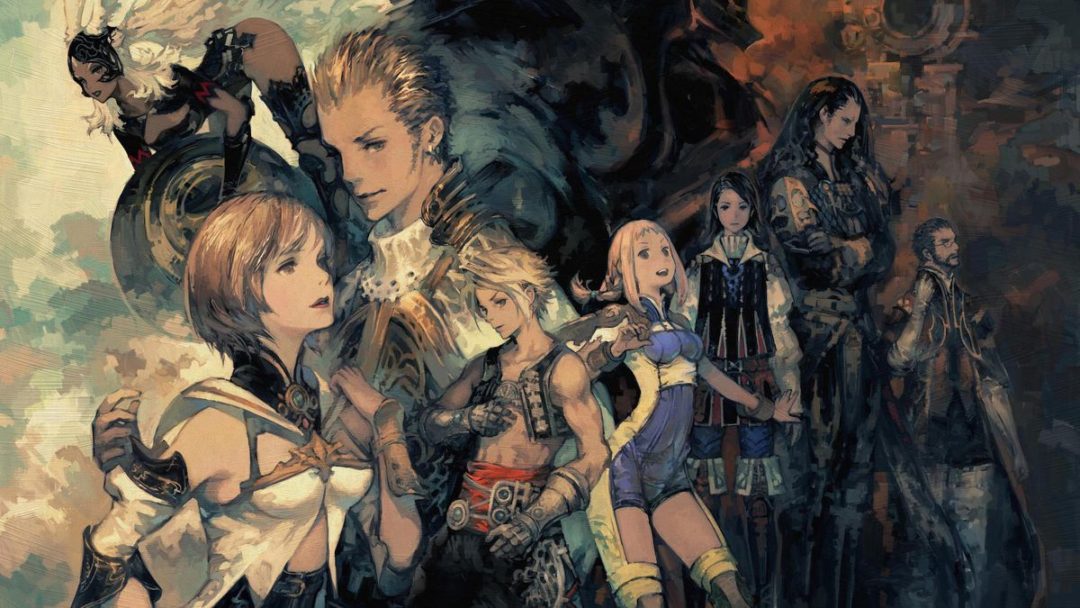
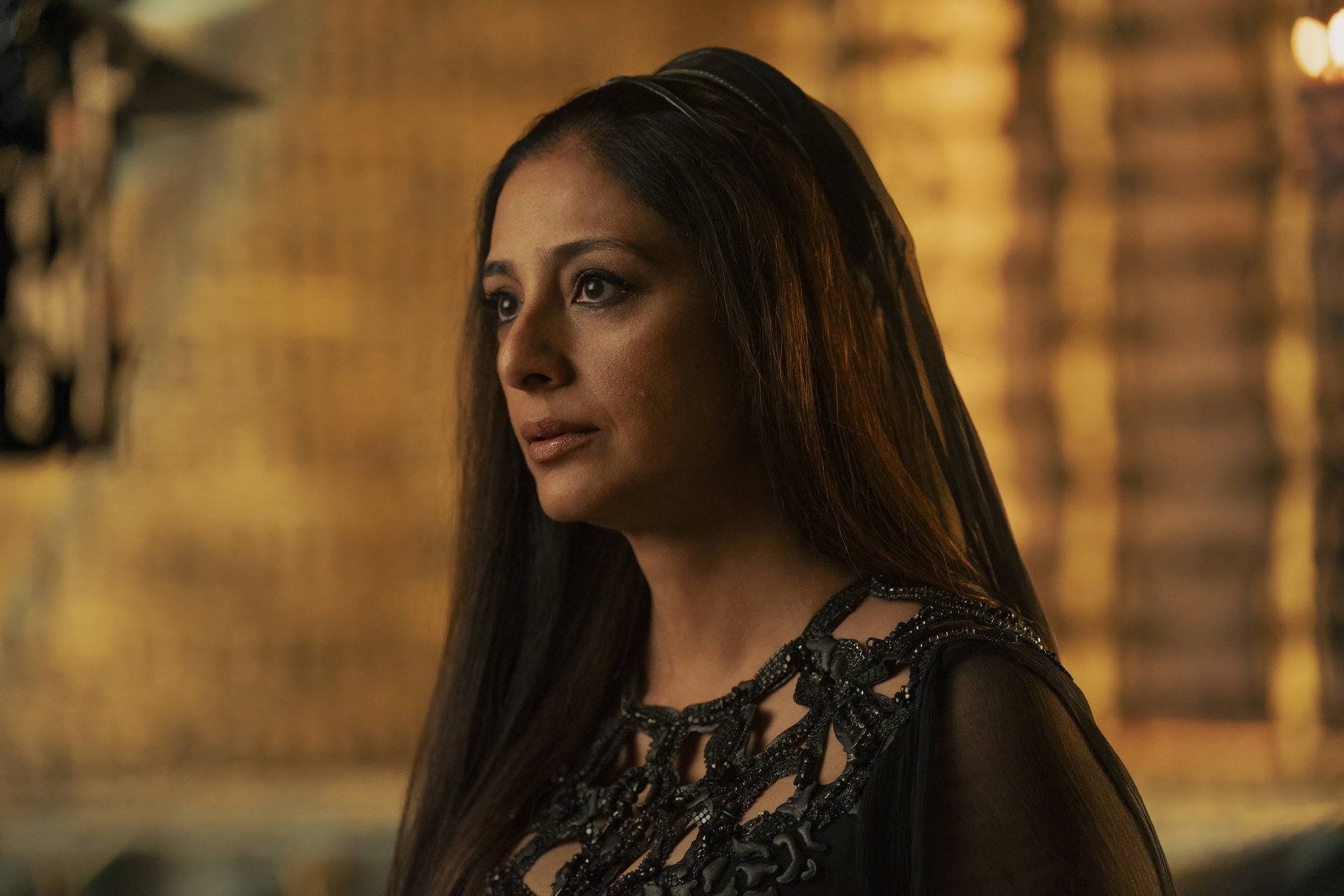
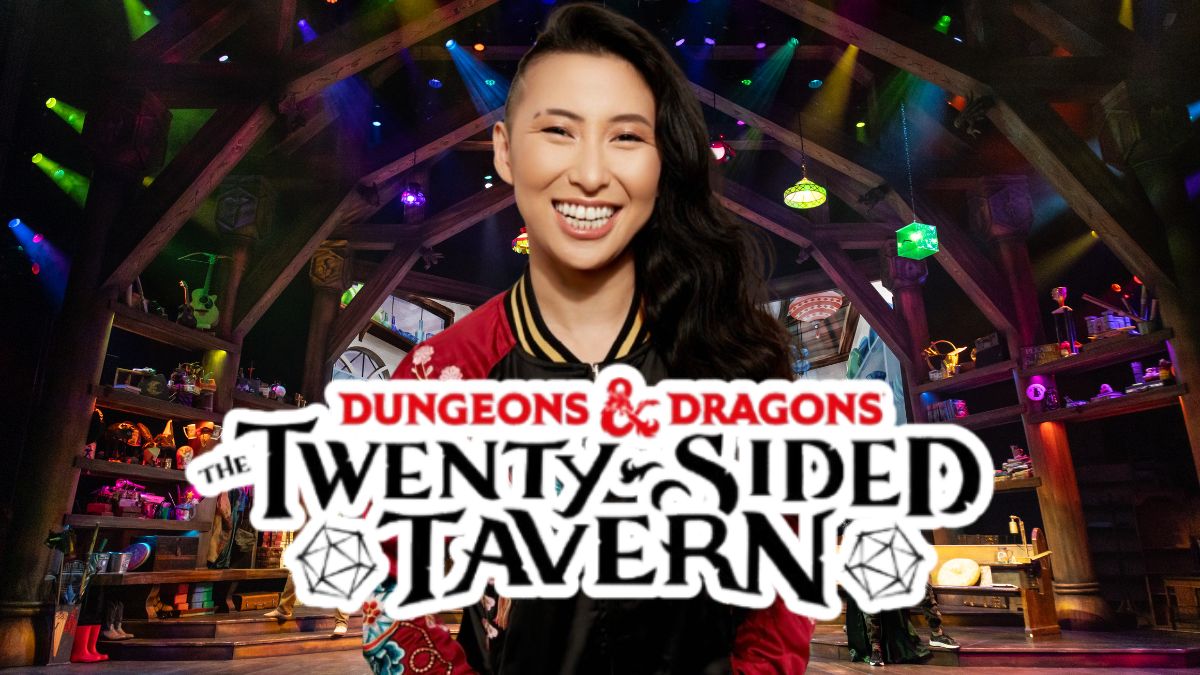
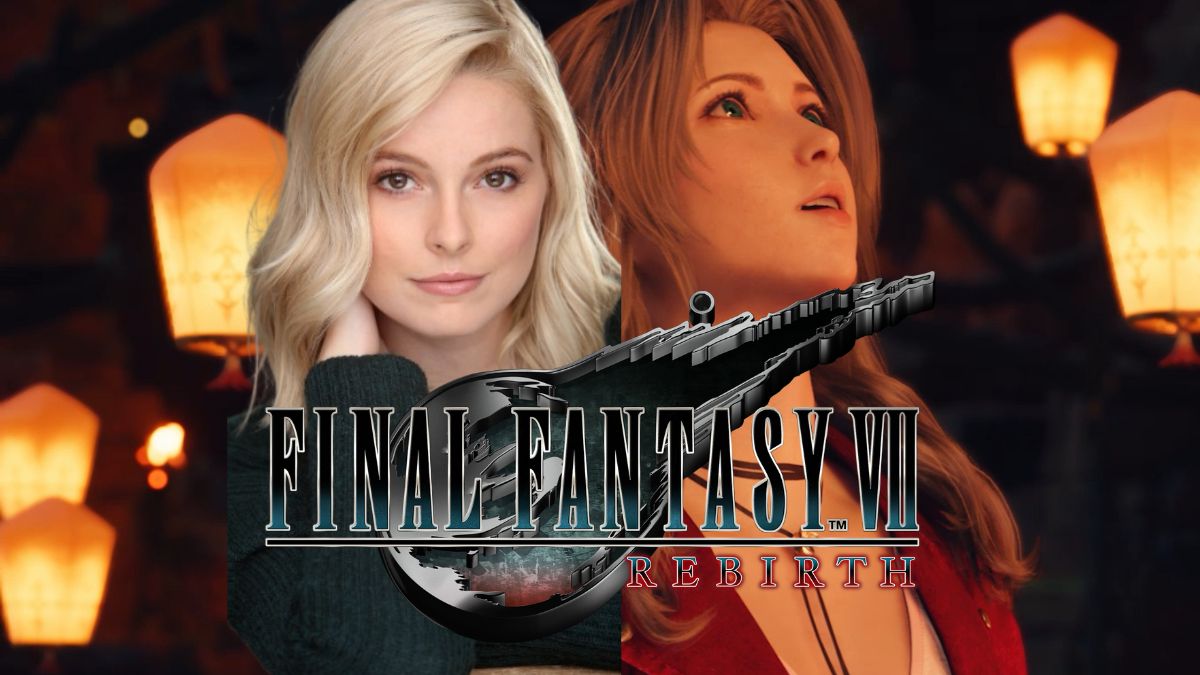

Published: Apr 16, 2019 04:00 pm